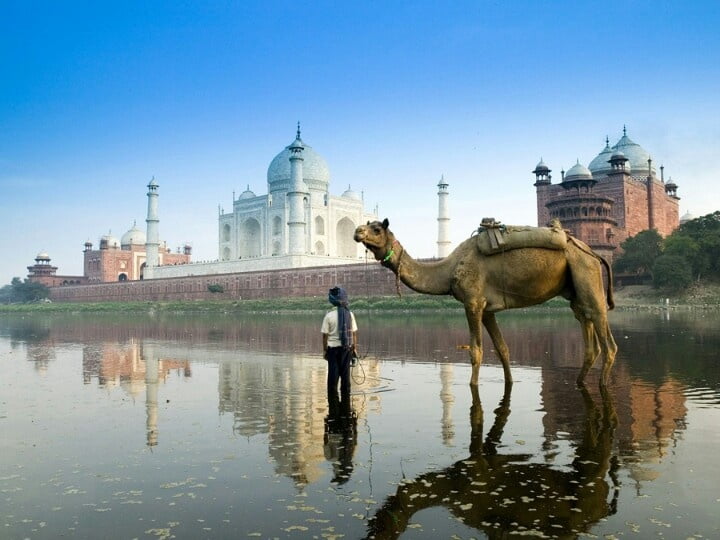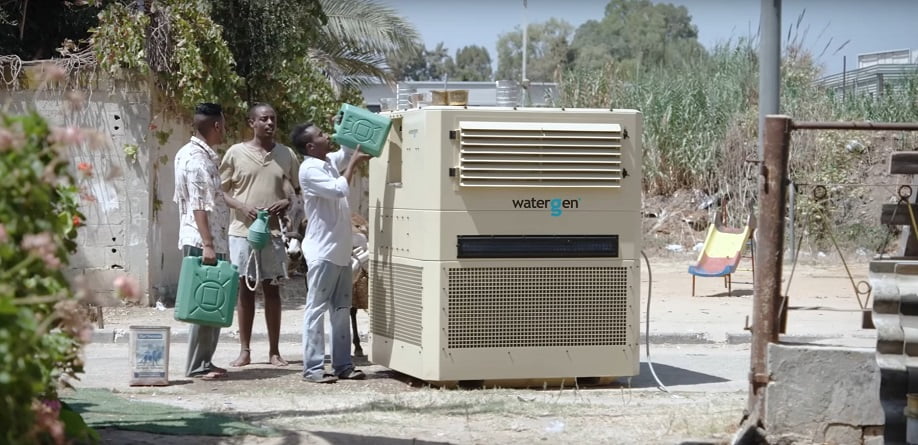Indian Prime Minister Narendra Modi is set to arrive in Israel this week in a historically significant first visit. This trip marks the first time that an Indian Prime Minister has travelled to Israel, and will strengthen what is already a flourishing relationship between the two nations.
India’s demand for Israeli tech, particularly water and agricultural technologies, as well as a shared desire to invest money in innovation, research and development, continue to drive the partnership to new heights.
Modi’s delegation is expected to include 100 entrepreneurs, including executives from some of India’s biggest companies. He will engage in talks with Israeli Prime Minister Benjamin Netanyahu, with the goal of promoting strategic partnerships in the areas of water conservation, food security, space technology, defense, and others.
SEE ALSO: In Face Of Water Crisis, Indian Minister Praises Israeli Technologies: “Israel Is My Guru”
Since the establishment of diplomatic relations in 1992, Israel and India have seen trade between the two countries jump from $200 million in 1992 to $4.167 billion in 2016 (not including defense agreements), according to Israel’s Ministry of Economy. An Israeli-Indian Free Trade Agreement has been in the pipeline since 2010, with observers speculating that this upcoming visit could add momentum to the process.
Modi’s trip is the latest in a string of successful interactions between high-level dignitaries from both nations. Most recently, in 2015, Indian President Pranab Mukherjee made the first presidential trip to Israel.
A strategic match
A glance at the strengths and needs of both India and Israel reveals why the partnership has been so successful thus far. With a burgeoning population (currently at 1.3 billion), India is experiencing difficulties with water conservation and purification, and food security.
According to the World Bank, around 21 percent of infectious diseases in India are related to unsafe water. Agriculture, too, is a significant part of the Indian economy, representing 17 percent of the GDP and depended upon by 50 percent of the population.
SEE ALSO: Israeli Pesticide Company That Fights Pests With Bumble Bees Now Launches In India
Israel is known worldwide for its strengths in water and agricultural technology. For years, Israel has been providing India with world-leading expertise and technology to help the larger nation combat these issues.
In return for capitalizing on Israel’s technological expertise, India provides Israel with a huge market opportunity, and endless avenues for business investment. With the second largest population in the world, and a GDP of around $2 trillion (according to the World Bank), the Indian market offers the kind of scale that Israeli businesses need.
Turning contaminated water into potable water
Over the 25 years of diplomatic relations, the shared initiatives have been wide-ranging. Since 2008, the nations have strengthened their relationship through the joint establishment of ‘Centers of Excellence’ in India, as part of the Indo-Israel Agricultural Cooperation Project. Present across nine Indian states, the 26 centers provide Israeli technology and expertise to Indian farmers. They have been highly successful, and there is suggestion that Modi’s upcoming visit will lead to an expansion of this plan.
One of the leading Israeli startups making waves in India is Aqwise. A water tech firm, Aqwise has built a water treatment plant that supplies drinking water to the city of Agra, where the Taj Mahal is located. Using an innovative technique of releasing polyethylene biofilm carriers into the water supply, the company provides around 2 million inhabitants and tourists with clean, potable water.
Sign up for our free weekly newsletter
SubscribeIsraeli company IDE has also done impressive work in the water conservation industry in India, implementing desalinization methods that have saved millions of dollars and thousands of millions meters cubed units of water. Israel’s Netafim has been implementing drip irrigation technologies that help Indian farmers conserve precious water.
WaterGen, an Israeli air-to-water technology company, is a global leader in water purification. By extracting moisture from air, WaterGen is able to generate water that is safe to drink. Earlier this year, they signed a memorandum of understanding with the India solar engineering firm, Vikram Solar. The deal, which is estimated to be worth at least $100 million, will help the company expand in the Indian market.
Growing Indian investments in the Startup Nation
Indian companies have shown an unbridled eagerness to tap into the Israeli tech scene. Aditya Birla, the third-largest conglomerate in India valued at $41 billion, has been targeting Israel to find new investments since 2016. Focusing on clean-tech, cyber security, financial technology, and water tech, the company has reviewed hundreds of startups. Infosys, an Indian conglomerate, bought Israeli cloud tech firm Panaya for $200 million in 2014. In 2007, Indian company Jain Irrigation acquired Israeli firm NaanDan, forming NaanDanJain Irrigation Ltd. The company is headquartered in Israel, and now serves farmers in over 100 countries.
Significant amounts of money continue to be channeled into joint initiatives by both governments. In the very near future, the Israeli government is set to approve a proposal to further economic cooperation with India by investing NIS 280 into water and agricultural technology, among other strategies. NIS 140 of that budget will go into an Israeli-Indian fund aimed at encouraging innovation and R&D for Israeli and Indian companies.
Joint ventures further foster innovation
Indian and Israeli companies have shown a shared desire to foster innovation. Earlier this year, Israeli equity crowdfunding platform OurCrowd and Indian private sector company Reliance Industries, together with American data communications company Motorola, set up an incubator in Jerusalem aimed at encouraging innovation in hi-tech in Israel. The incubator will focus on up-and-coming areas such as artificial intelligence, big data, FinTech, IoT, and computer vision.
OurCrowd has also formed a partnership with LetsVenture, the largest marketplace for startup funding in India. The partnership will give exposure to Indian startups, and offer deals to Indian investors.
India is also an ardent supporter of Israeli defense technology: Earlier this year, Israeli Aerospace Industries revealed its plan to provide India with missile defense systems in what will be the organization’s biggest security contract ever. The contracts amount to almost $2 billion, and will deliver advanced medium-range surface-to-air missiles to the Indian Army. India is currently the largest buyer of Israeli military equipment.
A powerful pair
Israel’s success in providing solutions to India despite its small size is truly an impressive achievement.
In the wake of Modi’s visit, we should expect positive announcements about the future of Israel and India’s strategic partnerships. If all goes well, India and Israel will continue to be a powerful pair.
Photos: Aqwise, Water-Gen, Jasveer10, chroniccrippler
Related posts

Editors’ & Readers’ Choice: 10 Favorite NoCamels Articles

Forward Facing: What Does The Future Hold For Israeli High-Tech?

Impact Innovation: Israeli Startups That Could Shape Our Future








Facebook comments